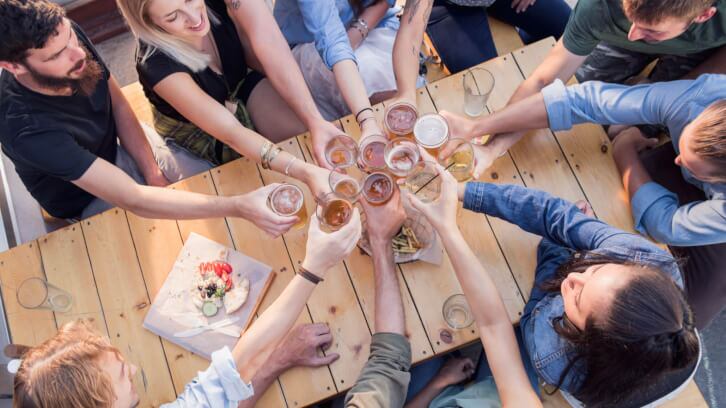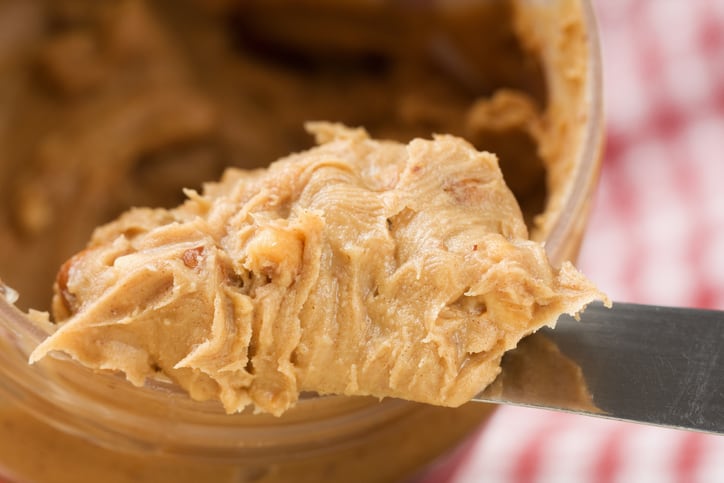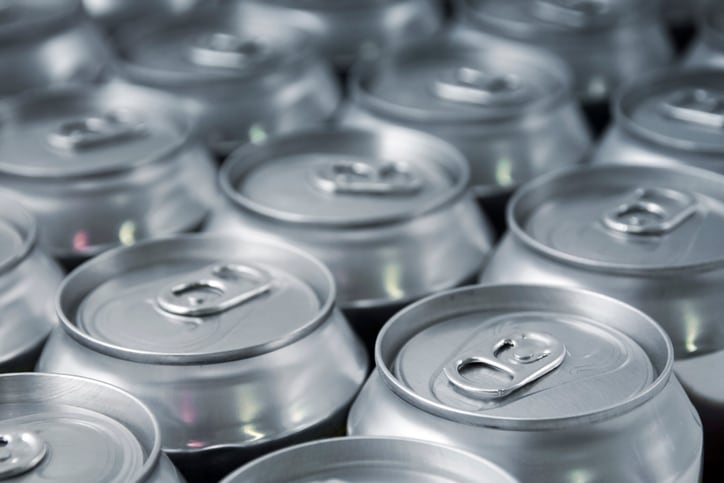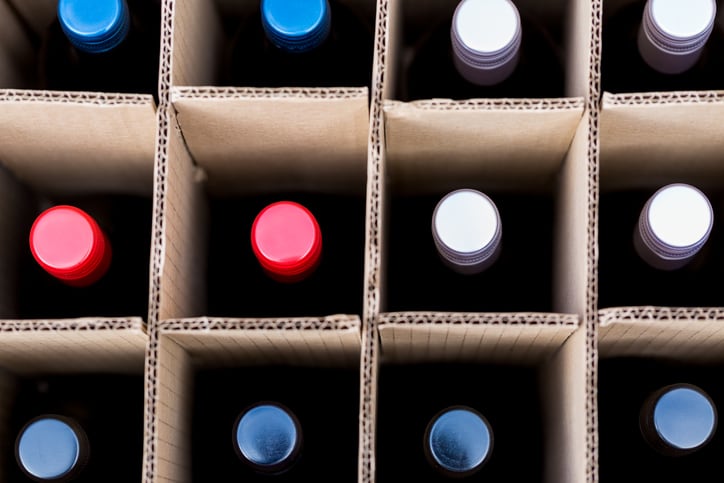The market intelligence agency sees consumers turning to alcohol alternatives for their health and to save money.
But that doesn’t mean they’re turning their backs on alcohol entirely. Around half of consumers say giving up alcohol entirely is too difficult: with the majority of sober curious consumers focused on limiting their alcohol consumption but not eliminating it.
So what do Americans expect from their alcohol alternatives? They’re looking for them to be indistinguishable the alcohol version (according to 67% of consumers) but they also believe they should be cheaper than alcoholic drinks (73%).
Desire for more alcohol-free options
Mintel sees the sober curious lifestyle gaining momentum: tracking that 41% of Americas consider no-alcohol months as a fun challenge, and 52% agree restaurants should offer more mocktails.
The top reasons Americans say they follow/would follow a sober curious lifestyle are for physical health (39%), to save money (35%), to make alcohol an occasional indulgence (35%), and for mental health (29%).
Caleb Bryant, Associate Director of Food & Drink, Mintel Reports US, said: “Expansion of the sober curious lifestyle, and growth of alcohol alternative (AA) beverages, signals a more mindful approach in consumers’ relationship with alcohol.
The sober curious lifestyle often provides consumers with a sense of community and support. In-person groups, online communities, and apps (including sober curious dating apps) exist to help consumers interested in recovery, teetotalers, and the sober-curious connect and support each other.
“Our data shows that most sober curious consumers are primarily interested in turning alcohol into an occasional indulgence, suggesting future opportunities and challenges for both the AA and alcoholic beverage categories.
While some alcohol brands may face sales declines stemming from the sober curious movement, premium alcoholic beverage options may see sales increase as sober curious consumers treat themselves to high-quality drinks that allow them to achieve their health and wellness goals.
AA brands must, therefore, recognize that their products may act as occasional substitutes rather than beverages consumers drink every day and focus on touting the health, wellness, and productivity benefits of reducing alcohol consumption to motivate consumers to follow a sober curious lifestyle.”
Health concerns are top of mind
Interest in health and wellness is a primary driver of the sober curious movement and the strong growth of alcohol alternative beverages, as 71% of sober curious consumers worry about the long-term health effects of alcohol consumption, compared to 57% of total consumers.
Around three-quarters of Gen Z (71%) and Millennials (73%) closely/occasionally follow or are interested in trying a sober curious lifestyle as it aligns with priorities, like health and wellness.
A third (35%) of consumers aged 22-34 say they follow/would follow a sober curious lifestyle for mental health reasons and among the 22-44-year-olds who are drinking less alcohol, 32% say they are drinking less to improve/maintain their mental health. As Millennials age and are adopting new personal responsibilities, seven in 10 (69%) say they worry about the long-term health effects of drinking.
While nearly a third (32%) of Millennials say they closely follow the sober curious lifestyle, actual adherence may vary from person to person and reflect their own definition of ‘sober curious.’ Mintel data reveals that younger consumers also hold fairly positive views toward alcohol as 51% of Millennials say that giving up alcohol entirely is too difficult and 69% agree that alcohol enhances special occasions.
“Younger consumers are drinking less alcohol to improve their mental health and increase their productivity, indicating opportunities for stress-reducing and sleep-promoting AAs. Additionally, brands can market AAs as beverages young consumers can enjoy at night without a hangover or grogginess in the morning, increasing productivity and empowering consumers to accomplish their goals,” said Bryant.
But consumers aren't turning away from alcohol entirely...
Despite the enthusiasm to improve health, nearly half (47%) of Americans admit that giving up alcohol entirely is too difficult.
And sober curious consumers still harbor ‘relatively positive’ views toward alcohol despite their awareness of health concerns, says Mintel.
One in five (18%) of consumer report drinking less alcohol compared to one year ago and 35% of consumers who follow/would follow a sober curious lifestyle want to make alcohol an occasional indulgence.
With the majority of sober curious consumers reducing/limiting alcohol consumption and not eliminating it, non-alcoholic beverage brands must focus on key selling points to earn consumers’ dollars: 67% of sober curious consumers agree that non-alcoholic drinks should taste indistinguishable from the real thing.
“Sober curiosity is trending as consumers prioritize their health and wellbeing, prompting many to seek premium, unique, healthful, and functional alcohol alternatives. Products ranging from NA beer to mood-boosting adaptogen tonics to traditional CSDs can leverage new opportunities as consumers strive to reduce their alcohol consumption. And while consumers are rethinking their alcohol consumption, alcoholic beverages remain a mainstay indulgence for sober curious consumers.
“Even as the AA category grows, premium alcoholic beverages will perform strongly as consumers drink less but increasingly opt for higher quality options. As such, alcohol companies can maintain their relevancy through the development of premium, better-for-you alcoholic drinks,” concluded Bryant.




